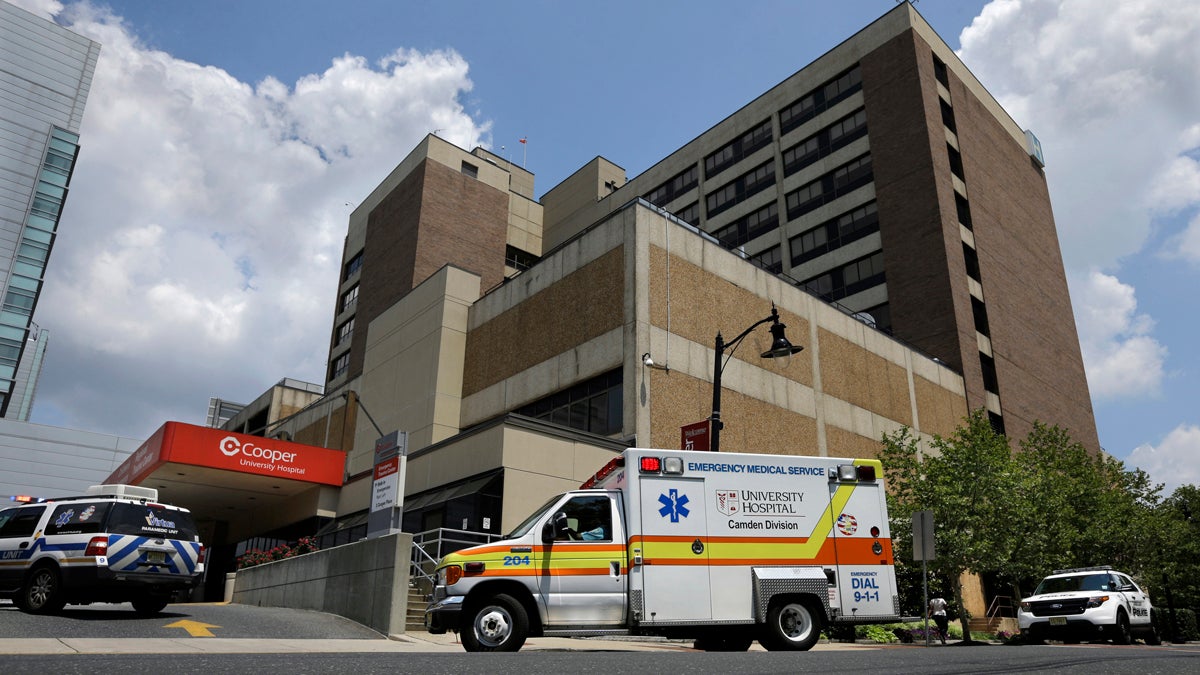As doctors age, Camden’s Cooper joins other hospitals in assessing cognitive thinking

At Cooper University Hospital in Camden, doctors over 72 now must go through an assessment of their cognitive abilities. (Mel Evans/AP Photo)
With about a quarter of all practicing physicians 65 or older, hospitals and practices from California to New Jersey are screening doctors for signs of cognitive decline.
At Cooper University Hospital in Camden, doctors over 72 now must go through an assessment of their cognitive abilities.
Dr. William Sharrar, a 76-year-old pediatrician at Cooper who has been there since 1983, found out last year that he would have to take a cognitive assessment. The three-hour evaluation seemed routine, he said, but it didn’t test his medical knowledge.
“There was a lot of memory-type things, and there’s some vocabulary definition,” he said. “They told you a story and then asked you to repeat it back to them. It was an interesting test to take, and I didn’t mind taking it at all.”
Doctors have to take assessments all the time, Sharrar said, so he’s used to them.
And while aging occurs at different speeds depending on the person, cognitive decline is a fact of life as people get older.
Nevertheless, “I do know some people were kind of against it. My take on it actually is that I would rather take these tests than have mandatory retirement,” Sharrar said.
Sharrar said he still loves coming to work, though, as he’s gotten older, he’s cut back a bit. He no longer works at night, for instance.
Dr. David Libon oversees these cognitive assessments for doctors He’s a clinical neuropsychologist at the New Jersey Institute for successful aging, part of Rowan University.
While all the doctors he’s worked with have been professional and cooperative, some have been nervous, he said.
They come in with the sense that they could “fail.” In fact, Libon said, there’s a lot of middle ground — and he tries to reassure doctors who come in with anxiety about the assessment.
“What I emphasize is that if the person that I’m testing perceives themselves as either not doing well or having to work hard or maybe perceives that they are not doing as well as they should, that that in itself does not mean that there’s actual cognitive impairment,” he said.
At this point, no doctor has had to step down based on the results of the assessment.
Based on the results of his assessment, Sharrar said, he’s good for another five years. At that point, he’ll be 81, and says he doesn’t know that he’ll want to keep practicing by then.
WHYY is your source for fact-based, in-depth journalism and information. As a nonprofit organization, we rely on financial support from readers like you. Please give today.




